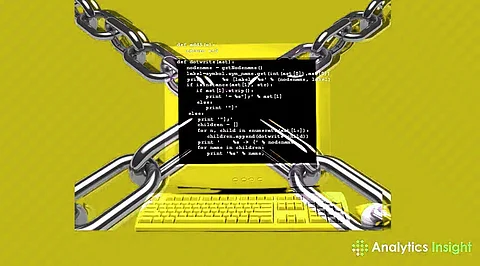
- Insights
- Cryptocurrencies
- Stocks
- White Papers
- Industry
- Geography
- Insights
- Cryptocurrencies
- Stocks
- White Papers
- Industry
- Geography


Digital world, decentralized platforms and distributed ledgers create unlimited opportunities for the blockchain technology which offers transparency, security and efficient operations for lots of industries. At the back end of every functional blockchain app, you will find a strong foundation boasting hundreds of developers who use their wide range of programming languages to create their applications. Ranging from smart contracts to infrastructure at the backend, the development process regarding any blockchain application entails multiple tools with specific uses that can be tailored to the particular specialties of the sector they are designed for. Thus, let's start with a tour of the best blockchain programming languages plus their impact on the blooming programmer's market.
At the dawn of the battlefield of blockchain app development, the leader is definitely Solidity, the programming language developed solely for smart contracts. Similar to JS, PShell, and C++, Solidity brings both a familiar syntax and special features that are created for a purpose, that is, making contracts secure and permanent. The factor that is attributed to its being supported by inheritance properties is that it enables code reusability leading to a simplified dev process, thus the integrity of decentralized applications (dApps) is preserved.
Java, which is especially known for the variety of tools and robustness, is applied for building blockchain applications, mainly for infrastructure and deployment of smart contracts. The Java language is object-oriented, and its extensive library of libraries allow programmers to implement large-scale and speed-optimized protocols for blockchain solutions. The widespread adoption in turn helps to build good tools and other resources, which in turn increases the productivity of developers in every stage of the development cycle.
Python is the language that becomes the favorite option among the dev community for blockchain because of the minimalism and simplicity of it. With things like move semantics and compile-time polymorphism, Python simplifies the development process thereby making it possible to execute the entire development process in a very little span of time and without many bugs. Its language of expression and the large selection of libraries make it a perfect choice for tasks of AI being, understanding, and contracting.
As the key element that allows for web development, JavaScript freely grows and mutates into the wraps of blockchain. Made use for dealing with users and adapting to the performance of networks on the decentralization end, JavaScript is playing a very important role for creating UIs (User Interfaces) that are responsive and highly intuitive in the development of dApps. Its flexibility and widespread application to these resources guarantee the existence of software frames and apps that will increase the adoption of blockchain as developers seek from the current blocks to off into the sky.
Well known with its stellar performance and maximal productivity, C++ reign that blockchain development dreams in bitcoin or litecoin projects generally. The C++ programming language is distinguished by its class-based features and the privilege to access low-level hardware systems. It allows developing critical modules that are fast called for and powerful. Implementation of elegant consensus algorithms and cryptographic primitives with these (C++) furnishes blockchain endeavors with the very tool (the raw computational power) that is needed for the scalability & security of the decentralized networks.
The result of the research of Google comes Go which becomes a prominent competing software for apps development in blockchain. Due to the static typing aspect and high-speed compilations provided by Go, it makes building robust and stable blockchain applications even more attractive, thus bringing about flexibility, agility, and supporting efficiency in the process. It (dataset) instantaneous benefit of simplicity and short statement, favors the speed of iteration and deployment; and leads into the innovation atmosphere in the blockchain community.
As similar to Java and C++ but C#, due to its compatibility and consistency, it is widely accepted to use in developing Blockchain applications that require portability and maximum performance. With its strong typing system and huge scope for framework support, C# sure gives developers confidence to tackle any complicated challenges. They can use this skill no matter whether they try to create robust backend infrastructure or deploy unwavering smart contracts.
In conclusion, the landscape of blockchain app development is as diverse as the technologies powering it. Each programming language brings its unique strengths to the table, catering to the varied demands of decentralized systems and distributed ledgers. Whether it's the solidity of Solidity, the versatility of Java, or the agility of Python, developers have an array of tools at their disposal to sculpt the future of blockchain innovation. As the technology continues to evolve, so too will the languages driving its advancement, ushering in a new era of decentralized possibilities.
